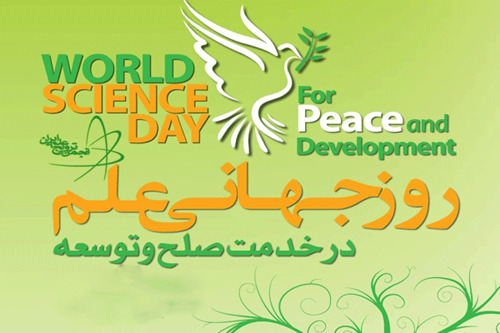
Message from Ms. Irina Bokova, Director-General of UNESCO, on the Occasion of the World Science Day for Peace and Development文章源自英文巴士-https://www.en84.com/739.html
教科文组织总干事伊琳娜·博科娃女士争取和平与发展世界科学日致辞文章源自英文巴士-https://www.en84.com/739.html
文章源自英文巴士-https://www.en84.com/739.html
10 November 2016文章源自英文巴士-https://www.en84.com/739.html
2016年11月10日文章源自英文巴士-https://www.en84.com/739.html
文章源自英文巴士-https://www.en84.com/739.html
The 2016 World Science Day for Peace and Development is dedicated to the theme “Celebrating Science Centres and Science Museums”文章源自英文巴士-https://www.en84.com/739.html
文章源自英文巴士-https://www.en84.com/739.html
2016年争取和平与发展世界科学日的主题是“让科技中心和科技博物馆大放异彩”。文章源自英文巴士-https://www.en84.com/739.html
文章源自英文巴士-https://www.en84.com/739.html
Our starting point is clear. Science stands at the heart of the 2030 Agenda for Sustainable Development, the Addis Ababa Action Agenda, the Sendai Framework for Action, and the Paris Agreement on Climate Change. These agreements embody a new vision for prosperity, peace and the planet, to allow every society to create and share knowledge, to nurture every source of innovation and creativity, to craft a more inclusive, sustainable and just path to the future. Taking this forward calls for an ever greater expansion of science and for tighter linkages between science and society.
我们的出发点是明确的。在《2030年可持续发展议程》、《亚的斯亚贝巴行动议程》、《仙台减少灾害风险框架》以及《巴黎气候变化协定》中,科学都处在核心位置。这些议程或协定体现了对繁荣、和平和地球的新愿景,即让每一个社会都可以创造和分享知识,培养每一个创新和创意来源,开辟出一条更加包容、可持续和公正的未来之路。推进这项事业,需要推动科学的进一步发展并加强科学与社会之间的紧密联系。
This is why science centres and museums are so important – for capacity building, for advocacy, to send strong messages about the importance of science for sustainable development.
因此,科技中心和科技博物馆大有可为,它们可以通过能力建设和宣传活动,在弘扬科学对可持续发展重要性方面,发出强有力的信息。
Science centres and museums plays key roles in nurturing the curiosity of women and men, as living laboratories of creativity, catalysing research and solutions to help societies meet challenges. In the digital era, when we need innovative initiatives to promote the learning of science outside the classrooms, museums and science centres are privileged places of education. They provide excellent ways to encourage children, especially girls, to pursue careers in science – to multiply our collective scientific capabilities.
作为创造力的天然实验室,科技中心和科技博物馆在培养人们的好奇心、促进科学研究和探索解决方案以帮助社会迎接挑战方面,发挥着关键作用。在数字时代,当我们需要创新举措来促进课堂之外的科学学习时,博物馆和科技中心是得天独厚的教育场所。它们提供了最佳途径,引导少年儿童特别是女孩立志科学事业,进而加强我们的集体科学能力。
In November 2015, UNESCO adopted a global Recommendation on the Protection and Promotion of Museums and their Collections, their Diversity and their Role in Society, strengthening our commitment to mobilize museums as key actors of peace and sustainable development.
2015年11月,教科文组织通过了《关于保护和加强博物馆与收藏及其多样性和社会作用的建议书》,加强了我们推动博物馆成为和平与可持续发展生力军的承诺。
This year, in the celebration of World Science Day for Peace and Development, we take this forward with the Association of Science-Technology Centres and the International Council of Museums, to nurture and share science knowledge.
在此基础上,今年的争取和平与发展世界科学日庆祝活动,我们和科技中心协会以及国际博物馆理事会一道努力培育和分享科学知识。
Science museums and centres are platforms for dialogue, understanding and resilience. They produce sparks of delight and wonder that inspire all visitors, regardless of age and background, in an experience that brings all women and men together around common values.
科技博物馆和科技中心是对话、交流和增强活力的平台。在那里形成的欢乐和奇幻的火花,通过围绕着共同的价值观相聚相会的体验,对不同年龄不同背景的所有参观者都有所启迪。
In this spirit, I invite all of partners and governments to do everything to support, nurture and harness the full power of science museums and centres to shape a more inclusive and sustainable future for all.
本着这一精神,我邀请所有的合作伙伴和各国政府,尽一切努力支持、关心并充分利用科技博物馆和科技中心,为所有人打造一个更加包容和可持续的未来。
俄文、法文、西文、阿文版:http://pan.baidu.com/s/1skLv02x
英文版、中文版:

